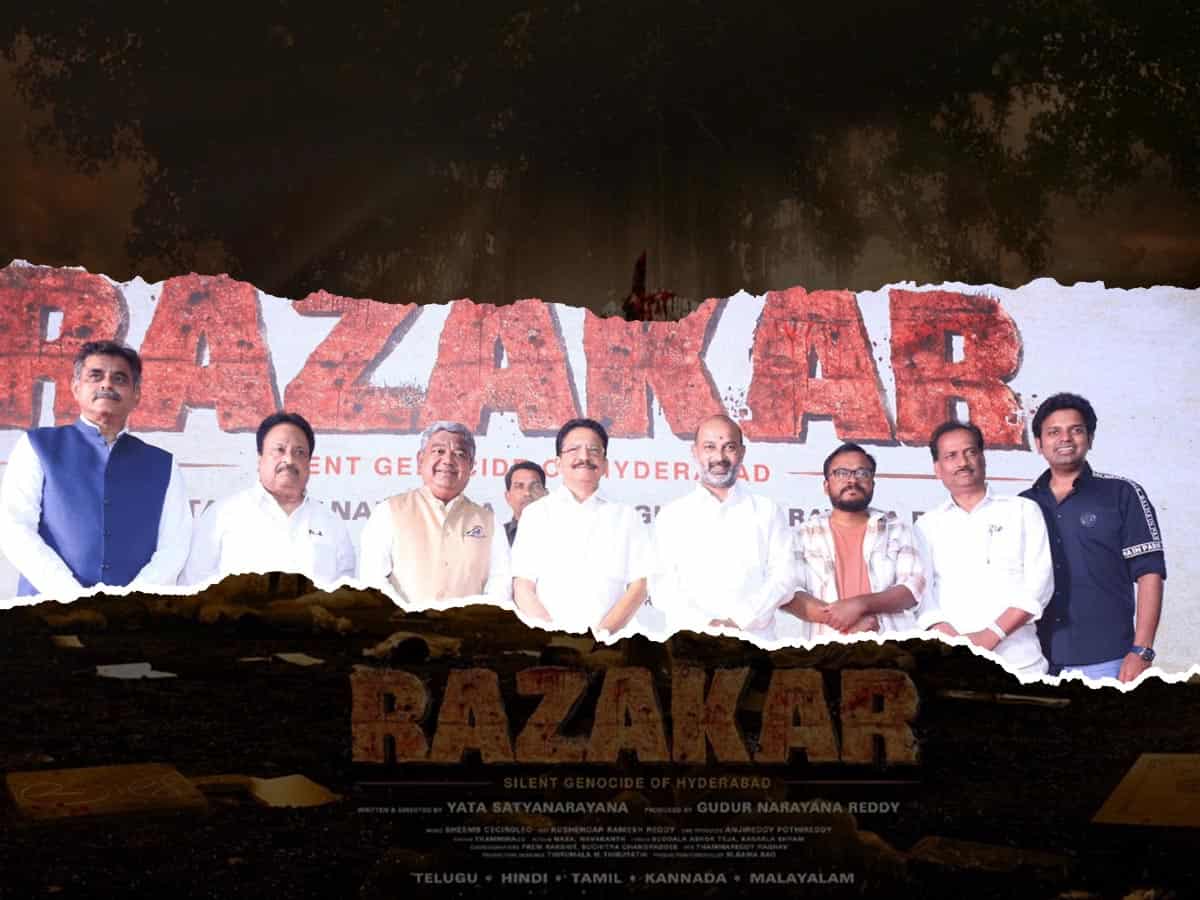
Hyderabad: Numerous reactions poured in after the teaser of a ‘worrisome’ movie, titled ‘Razakar’ was released on Sunday. While many expressed satisfaction that the movie would finally be released, others expressed worried about the potential damage it could cause to the law and order in the city, as it depicted a ferocious atrocity from the past.
The release of the movie trailer coincided with what the BJP calls Hyderabad ‘Liberation Day’, garnering millions of views in no time!
The movie claims, “India gained independence on August 15, 1947, but Hyderabad did not.” It also seeks to highlight the alleged atrocities committed against the people of erstwhile Hyderabad by the Razakars.
‘Even teaser sparks hatred’
Earlier, before the release of the teaser, MBT spokesperson Amjed Ullah Khan stated that the film is based on distorted history and pure imagination and has the potential to incite hatred among people. He demanded a ban on the movie.
However, on Monday, September 18, political strategists and columnists raised concern and appealed to the Telangana government to curb the movie and stop it from getting released.
Stating that the movie was nothing but a story based on fake propaganda, a citizen tagged the ruling BRS party leaders in Telangana and said that even the teaser of that movie is creating hatred between communities.
Another citizen claimed that the movie makers had misused Mecca Masjid images, coupled with pro-Muslim slogans.
“The makers are up with a new manipulated history where Muslim victims are replaced with Hindus to spread more hate and vilify Muslims,” wrote another.
“It was not about Hindu-Muslim bro, all were effected bro, Aman ki Aasha Brooo(sic),” said another Netizen on X.
Who were the Razakars?
The Razakars were a volunteer paramilitary force of the nationalist party in the Hyderabad state under Nizam’s rule. Formed in 1938 by the Majlis-e-Ittehadul Muslimeen leader Bahadur Yar Jung, they expanded considerably during the leadership of Qasim Razvi around the time of India’s independence.
After the integration of erstwhile Hyderabad into the Indian Union, Qasim Razvi was initially jailed. Later, he was allowed to move to Pakistan, where he was granted asylum.
